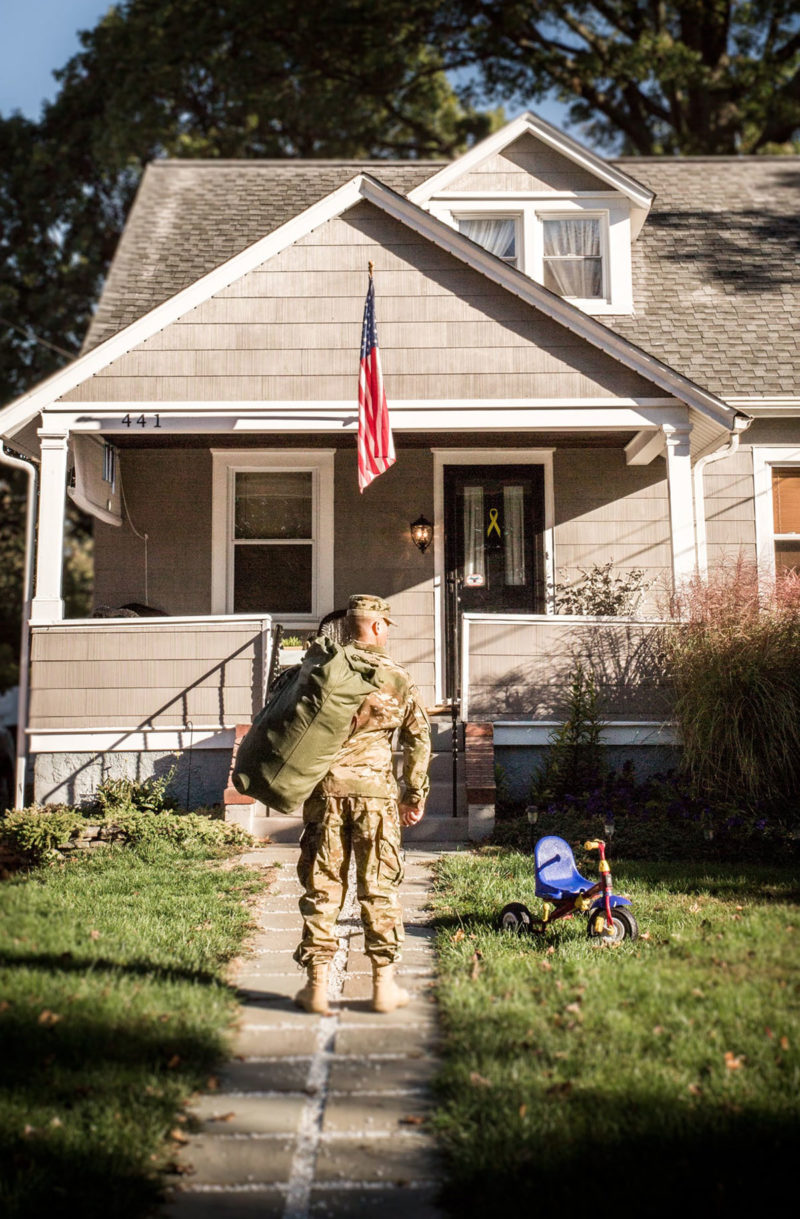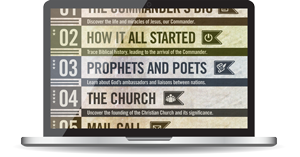God’s Presence Helps Me Trust
Week Summary
How does God remind us of His faithfulness during deployment?
Week two studies God’s instructions to Moses for instituting the ritual of Passover to remind the Israelites of his faithful protection and guidance. We learn that God’s intention for ritual is to strengthen relationships, provide comfort, and build trust in uncertain times. Together, your group will explore rituals of faith families can establish during times of deployment.
About This Journey
Deployment can leave those at home feeling like we’re alone in the wilderness. When we live in the presence of God, we are never on our own. In “Deployed Not Despondent”, we journey through Exodus to help us recognize God’s activity around us and to see deployment through a lens of blessing and gratitude.
This Week's Readings
Soul Preparation
Read
“The blood shall be a sign for you, on the houses where you are. And when I see the blood, I will pass over you, and no plague will befall you to destroy you, when I strike the land of Egypt.”
-Exodus 12:13Reflect
How do I prepare for a separation that will take my beloved thousands of miles and countless imaginable dangers away? I can check off lists until the red ink in my pen is finished and still not be prepared in the way that counts. How do I prepare my soul for such a departure? There is no formula to make the gut-wrenching farewell easy. There are no pat answers to alleviate fears of the unknown.
Oh, that the angel of the Lord could put blood on my doorpost to be sure death would pass by our home. There would be no fearful anticipation of a knock on the door and the words, “We regret to inform you …”
When it comes to deployment, the elephant in the room is the anticipatory grief that takes up residence in your soul. Your fear of what could happen becomes your new reality.
Actual blood on my doorframe has no power to deter death today, just as it had no actual power to deter death for the Israelites. For them, the presence of blood painted on the top and sides of the door was a testimony to the faith of those who dwelled in the home. For the Israelites, God’s promise to “pass over” them ensured their physical protection.
Today, I cannot control what will happen to my family or me. However, I can protect my soul as I practice trusting in Jesus. Jesus, the Lamb of God who gave his life for us, redefined Passover to be an eternal protection. Whether you walk out the door to deploy, or you simply go to the grocery store, you can be confident of this eternal protection. The person who trusts in Christ can be certain that death and the grave will not overcome.
Respond
Passover is a Jewish observance characterized by careful preparations. What preparation have you made for your soul-care as you approach this deployment?
Prayer
Father, you have called me on this journey and I want to trust you for every step. Help me trust you for the protection of my family—both now and for eternity. Amen.
Wheels Up
Read
Then he summoned Moses and Aaron by night and said, “Up, go out from among my people, both you and the people of Israel; and go, serve the Lord, as you have said.”
-Exodus 12:31Reflect
“Wheels up” and “underway” are terms used by military personnel to describe that time when the plane is in the air or the ship is out to sea. Now the deployment countdown can really begin. For Moses and the Israelites the term could have been “Roll out” to mean it was time to roll the wheels of the carts out of Egypt and into the desert.
A core theme of the journey the Israelites took out of Egypt is that of leaving an undesirable situation for one that is better. You may say, “I don’t need to leave an unacceptable situation and go to something better. I certainly do not see deployment that way. Deployment is the undesirable situation!”
I get it! But, what if you could view this time when your husband is away as a time to make something better? Is there anything you can leave—something you are accustomed to that you could improve? Might this be a time to become healthier? Could you use some of the extra deployment pay to pay off debt? What special memories can you make with your children? In other words, what can you do that does not just pass the time, but actually brings improvement to your life?
Historians record the exodus as the time when the Hebrews gained their freedom. While that is true, their exit was not to gain freedom for freedom’s sake. Their exit was to gain freedom to worship and serve the Lord. Their exit gave them an opportunity to expand the name of the Lord. Their exit was an opportunity for God to teach them about himself and their relationship with him.
Respond
Consider planning your own “Wheels Up/Underway” Day. Make the day of departure a day to do something positive. Start “Day One” with a good choice. How might deployment be a time to make a major positive change in your life? In a spiritual sense, how might you serve the Lord during this time of deployment? How might you “expand the name of the Lord” during deployment?
Prayer
Lord, let this time of deployment for me and other military sisters be a time of growth. Show me areas where I can become stronger in my character and in my faith. Amen.
Remember This Day
Read
Then Moses said to the people, “Remember this day in which you came out from Egypt, out of the house of slavery, for by a strong hand the Lord brought you out from this place.”
-Exodus 13:3aReflect
Stories before bedtime, prayers at meals, when you put up or take down your Christmas tree, certain things you do on a family vacation, are rituals. Rituals form family identity. Rituals give us a sense of belonging and make us feel safe.
As the Israelites left Egypt, God directed Moses to initiate specific rituals by way of feasts and festivals. To this day, the Jewish faith observes these rituals, thus emphasizing the importance of remembrance and the value of tradition. Such rituals help create meaning and structure in life.
Rituals can help you navigate a successful deployment. They can act as the glue that keeps you connected to your husband, family, friends, and God. For the military family walking through deployment, rituals can serve as a bridge that narrows the distance. In a practical way, they can:
- Strengthen family connections
- Give children a sense of security by knowing what to expect, and when
- Give a family its own personality and sense of being unique and special
- Reinforce a family’s values
- Help family members cope during challenging times.
Deployment is not a time to suspend family rituals, but to continue them and even come up with some new ones to practice during separation. Remember that the ritual comes in the actual doing of an activity. The ritual is the act. Moses did not just tell the people to remember; the remembering was in the act of the feasts and festivals God had him establish.
Respond
What are some of your family rituals? How do these strengthen your relationships? What are some rituals of faith you can establish during this time of deployment?
Prayer
Father, I pray you will strengthen our family during times of separation. Keep our family strong and together. Strengthen our ties with one another and with you. Give us joy, laughter, and sweet memories as we celebrate special rituals and family traditions. Amen.
Unexpected Detours
Read
When Pharaoh let the people go, God did not lead them by way of the land of the Philistines, although that was near. For God said, “Lest the people change their minds when they see war and return to Egypt.” But God led the people around by the way of the wilderness toward the Red Sea.
-Exodus 13:17-18aReflect
Stories before bedtime, prayers at meals, when you put up or take down your Christmas tree, certain things you do on a family vacation, are rituals. Rituals form family identity. Rituals give us a sense of belonging and make us feel safe.
The Israelites left Egypt, but the direction God sent them was neither the fastest, nor the easiest. Scripture tells us God led them by way of an unexpected route to protect them. He knew armies would attack and such direct conflict would surely bring discouragement.
Kristen Welch writes about such unexpected detours in her book Rhinestone Jesus:
…I think most of us view roadblocks in our path of life as setbacks. These obstacles alter our journeys and leave us discouraged. But God provides detours if we pay attention. When we choose to see His alternate route as an opportunity for something new rather than a dead end, it shifts our perspective.
We have to be careful not to discount a detour. Instead, look to see if the detour is actually something God is doing because he knows what is best. Though we may never know the precise timing in all these things, we can have confidence that God knows how to work all things together for our good.
Just because the road is more difficult does not mean it is not God’s best way. Think about the difficulty of childbirth, or getting in shape. Such challenges are painful, but can end up producing good in and for us. Deployment can certainly be a painful, out of the ordinary situation; but if God is involved, the chances of it being something good are much better!
Stories before bedtime, prayers at meals, when you put up or take down your Christmas tree, certain things you do on a family vacation, are rituals. Rituals form family identity. Rituals give us a sense of belonging and make us feel safe.
Respond
In what ways is it difficult for you to view deployment or other challenging situations as something God can use for good? Can you think of times in your life when a detour ended up being a blessing?
Prayer
Father, I do not like detours and places where I cannot see the road ahead. Help me not to whine or bemoan difficult places, but rather trust that, because you are present, you will bring something good from the experience. Amen.
A Bag of Bones
Read
Moses took the bones of Joseph with him, for Joseph had made the sons of Israel solemnly swear, saying, “God will surely visit you, and you shall carry up my bones with you from here.”
-Exodus 13:19Reflect
It is tempting to overlook a seemingly odd and morbid passage of Scripture that talks about carrying a bag of bones on a journey, but that would be a mistake. This little verse tucked into Exodus 13 has great meaning. This little verse is a statement of connection. It connects the past to the present and the present to the future. This little verse is a statement that lets us know this exodus out of Egypt is part of God’s larger plan for the Israelites.
The book of Exodus is a continuation of the story started in Genesis. God delivered his people out of bondage not because they deserved it, but because of a promise made to Abraham who carried it to his son Isaac, who carried it to his son Jacob, who carried it to his son Joseph. Later, Joseph requested the Israelites take his bones to Canaan when they finally left Egypt (Genesis 50:24–25). The promise to make the Israelites a nation in the land of Canaan was a promise that captivity in Egypt would not thwart. The bones of Joseph represented a commitment by the people to trust God for their past, present, and future.
It is easy to view deployment with tunnel vision and to forget that, from a military and national perspective, a larger plan is at work. Whatever your thoughts or feelings about that military or national plan, the challenge I offer you today is to view it from a personal perspective. Believe that God can use deployment to fulfill the larger plan for your life.
Think about it: long before Moses led the Israelites out of the country, before they became slaves, even before they grew into a nation of millions in Egypt, Joseph’s inspiration already indicated that God had a grand strategy both for going into Egypt and coming out of Egypt. Over the four-hundred-year period that Israel was in captivity, it was easy to lose sight that there would be deliverance.
When the Israelites were struggling in mud quarries making one brick at a time, no doubt it was hard to see that God had a larger plan. They were just trying to make it through one day at a time. When your house is a mess, your kids are sick, and stacks of dishes are in the sink, it is hard to see how God is at work on a larger plan for your good. But: don’t forget where the bones are buried, because you will get to dig them up and carry them out. What kind of bones will you carry out?
Respond
In what ways might difficult circumstances be part of a larger plan for your good? Joseph’s bones were tangible symbols of his faith that someday the circumstances for the Israelites would get better. What bones of hope and faith are buried in your life and family? Do you have relatives that have buried a legacy of faith in you? If possible, contact a loved one or dear friend and talk about your shared faith and hope.
Prayer
Lord, give me a hope greater than this day. Give me a hope that sees beyond the activity of the present. Give me a hope that is more than a wish, but is a strong bridge that carries me from today into tomorrow. Amen.
Resources & Info
Resources to help you and other military wives in your community.
Are you enjoying these resources?
Sign up now to save your Journey progress and your favorite Segments.
Your download is being prepared.
- Small Group Resource: Deployed 1 - Leader's Guide
- Small Group Resource: Deployed 1 - Participant's Guide



